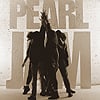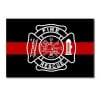Playing by ear!

Jam10
Posts: 654
Anyone have any advice on how to play guitar by ear. I've been playing about a year and a half and I want to start playing by ear and not rely on tabs so much. I also feel that playing by ear and knowing what notes to play next, and feeling the song when jamming are one of the most important parts about being a great musician.
Are there any exercises, books, DVD's or software that I can buy that will help me to learn how tp play by ear, or is it just a matter of having more experience and listen to songs and try to figure them out. Any help would be greatly appreciated.
Thanks!
Are there any exercises, books, DVD's or software that I can buy that will help me to learn how tp play by ear, or is it just a matter of having more experience and listen to songs and try to figure them out. Any help would be greatly appreciated.
Thanks!
Post edited by Unknown User on
0
Comments
-
start with easy songs like Nirvana or Green Day and listen for the root notes of the chords. after you do that for awhile, you'll get the hang of what chords sound like by ear and can move on to more complex songs. for riffs and stuff, Metallica's black album is pretty good because it's not as fast and heavy as their earlier albums. "Enter Sandman" is a pretty good one to pick apart by ear.0
-
Yeah, it'll just kinda come to you after a while. I've been playing guitar, trumpet, drums, and piano by ear my whole life...tabs are kind hard on me. Trust me, start with something easy and then go from there. Eventually, you'll just pick it up.Grand Rapids '04, Detroit '06
JEFF HARDY AND JEFF AMENT USED TO LOOK THE SAME
"Pearl Jam always eases my mind and fires me up at the same time.”-Jeff Hardy0 -
If you are lucky enough to habe perfect pitch, or even nearly, playing by ear is not so hard.
If not, it takes years of experience.
Making sure your guitar is always perfectly tuned is a place to start.
Knowing what key the song is on is next, so you have an idea of what notes and chords might be used. Learning a lot of songs in a similar style, so you can recognise chord changes and riffs helps. Even though I do not have perfect pitch, and cannot really play by ear to any extent, after several years of learing songs accurately form music notation, I can now recognise a lot of riffs. Pretty much every famous guitarist has their bag of tricks, and you can start to recognise characteristic movements once you know what is on the bag.
Knowing some music theory helps predict what chords are liely to be used once you know the key, though guitar has a way of stuffing that idea, since it breaks lots of rules, and uses a huge variety of tunings which create alternate fingerings and great potential for confusion. Solos typically contain lots of chromatic notes, and change modes and ketys frequently as they either follow or deliberately clash with or move against the chord changes, so just knowing the key is not as much help as many folk will have you believe. BY way if example, every Metallica song is in E (or a detuned variant, with teh same fingering to the relevant scales), but the solos and riffs run the full gamut of ideas from one end ogf the fretboard to the other.
A basic I-IV-V blues is an easy place to start, because there is a limited selection of places it can go. I have managed to pick out a few White Stripes songs, which is about the limit of my achievement.
I have coincidentally just spent a couple of hours wrestling with "Don't Tread on Me" (with tab), so I'm not inclined to agree that the Black album is easy, even though the tempo is slower than KEA and Puppets, the rate and complexity of chord change is not much different.
But really, there would not be a systme of notating music, or a massive music publishing industry if there was no value in learning music by studing the works of great and not-so-great composers and taking time to develop a depth of musical knowledge.
There is a great resistance to this idea in the guitar world, but there is no shame in not being able to decipher songs after only a couple of years of playing. There is no other instrument where people expect to be able to do this.
Usually I get flamed severely for daring to suggest this, but it's true all the same. But just go to the net and see how wildly inaccurate most attempts at transcription are, and you will quickly see how few people are really adept at it. Even professionals working for magazines manage to produce wildly differeing versions of the same song. I recall two magazines last year both with YLB at the same time and lots of variation, both different to the GTW version.
People seem to think that following music notation is some kind of mindless soul-sucking conformity, which takes all the fun out of it, and I'm damn sure there are teachers who manage to make it just that, but if you focus on exploring music that excites and intruiges you, and learning relevant theory about how that music is constructed along the way, one day you will start to hear the notes in your head and know where they are on the fretboard, or not.
Pefect pitch is a blessed gift given to few. Those who have it are bewildered by the inability of those who lack it.
It probably can be trained to an extent, but there is no magic method. Those cheesy ads in teh back of guitar mags, with the same guy with different hair added remind me so much of penis enlargement ads.Music is not a competetion.0 -
chiefojibwa wrote:find some friends and JAM.
Damn straight!heh, keep her lit.
Dublin, 23/08/2006 = Lifechanging! X D
Katowice, 13/06/2007 = Phenomenal = )
London, 18/06/2007 = Pretty darn sweet = )
London Poster Wanted, PM if you have one for sale = )0 -
Noodle around and find the intervals first, then move it to the right notes.Camden I '06, Camden II '06, Bonnaroo '08, Camden I '08, Camden II '08, Philly Spectrum II/III/IV '09, MSG I '10, MSG II '10, Made In America '12, Wrigley '13, Brooklyn II '13, Philly I '13, Philly II '13, ...0
-
I just sent this to Jam10 - Hopefully it answered his questions.
I'll just post what I sent him - in case anyone else has a similar question or wants some info on this subject . . .
hmm, interesteing . . .Jam10 wrote:Hi there fellow Pearl Jam fan. I checked out your my space page. It's awesome and you sound like a very accomplished musician. I noticed you are a guitar instructor as well with a lot of musical education. I am also taking private lessons up here in Canada and I feel that it is important to get advice from different guitar players and instructors and my question to you is.........what do you feel is the best way to train your ear and play a song by listening to eat and not have to rely on tabs?
I feel that one of the most important aspects in being a great musician is knowing how to play by ear and know what notes sound good together and when to play them.
Thanks for taking the time to read this and any advice would be greatly appreciated! If there are any books, DVD's or web sites that you can recommend that would be great.
Thanks again!
Well, one of the best things you can do is to really memorize your MODES (a.k.a. extended scales) well enough that
they become second nature (someone can ask you to play an A-Dorian mode and you're there instantly).
Then you'll have to practice the rudiments of playing these modes over chord progressions in as many different keys as you
can (this helps you develop and understand the relationship between what you are hearing and what you are playing).
I recommend playing modes over 2-5-1 progressions since it's one of the easiest progressions to hear the Dominant
to Tonic (root) relationship, and gives a real sense of finality to chord progressions (understand?).
Jamey Aebersold makes a 2-5-1 progression CD/Book that helps people work through these progressions.
What you are trying to accomplish and understand is the relationship between whole steps and half steps in your
playing, and then being able to hear and distinguish what comes next while you're playing. It all comes down to hearing
what you want to play before you play it, and it can take some people years to develop this while it may only take 8-10
months for others to really develop a grasp on this.
I asked both Mike McCready and Saul Hudson (SLASH) about this since they both say that they "play by ear", and both
of them admitted to actually getting lost sometimes because "by ear" is the only way they play, and if a tune's in a non
usual key for "Rock" or "Blues" they struggle to fall into a comfortable place in their playing (and make a lot of mistakes)
Thus both have studied some melody and music theory to help understand this quandary - this is why I recommend that
everyone get an understanding of key signatures (what's sharp or flat) and extended scales "MODES" (try to remember
that Pentatonic Scales don't work or sound good all the time - there are many times where something else works much
better and gives a much better sense of tonal stability - remember that MAJOR Pentatonics remove the 4th & 7th scale
degrees while MINOR Pentatonics remove the 2nd & 6th scale degrees - and remember that sometimes these excluded
notes can make or break a melody). I've given these out to many people on this Pearl Jam Forum, so help yourself.
click here: Scales and Modes
click here: Chord Explinations
click here: Key Signatures
I created these handouts for my guitar students, and I give them to every student that walks through my door (I consider
these fundamental). I learned all this stuff at the University, and I try to apply them to everything in one way or another.
I started playing guitar fairly late in life (started playing seriously at age 21 - I'm now 33).
I don't know how old you are, but hopefully these won't be too complicated to understand.
Cheers . . .
- Ian C.T. vom Saal♫ ♫ ♫ ♫ ♫ ♫ ♫ ♫ ♫ ♫ ♫ ♫ ♫ ♫ ♫ ♫ ♫ ♫ ♫ ♫ ♫ ♫ ♫ ♫ ♫ ♫ ♫ ♫
<b><font color="red">CONTACT ME HERE</font>: www.myspace.com/ianvomsaal</b>
♫ ♫ ♫ ♫ ♫ ♫ ♫ ♫ ♫ ♫ ♫ ♫ ♫ ♫ ♫ ♫ ♫ ♫ ♫ ♫ ♫ ♫ ♫ ♫ ♫ ♫ ♫ ♫0 -
try to play simple melodies with single notes, nursery ryhmes, "old mcdonald", tv theme songs, "take me out to the ball game", etc.....you will see that a lot of melodies have just a handful of notes, its not like they use notes from all over the place
and you can start on any note you like and work from there.....its not like you have to play the melody in the exact key as the actual song....as long as the notes are correct in relation to each other, you're good"I'll tell you what: If all I had was Pearl Jam, and I didn't have another band in the world, I would not be worried. Because in there is the essence of making great music. You don't have to use it all at once, but it's there." - Neil Young0 -
Playing vocal melodies or melodies of other instruments can help as well.0
-
Jam10 wrote:Anyone have any advice on how to play guitar by ear. I've been playing about a year and a half and I want to start playing by ear and not rely on tabs so much. I also feel that playing by ear and knowing what notes to play next, and feeling the song when jamming are one of the most important parts about being a great musician.
Are there any exercises, books, DVD's or software that I can buy that will help me to learn how tp play by ear, or is it just a matter of having more experience and listen to songs and try to figure them out. Any help would be greatly appreciated.
Thanks!
1. http://www.maximummusician.com/playguitarbyearintro.htm
2. Another good way is, those song that you instantly recognize the moment you hear the first couple of notes, learn to sing/hum those notes/chords, find out what scale they're in, then and sing/hum them over and over (not necessarily the whole song). Soon you'll be able to recognize that medley and scale in any song and playing that tune will become second nature. Repeat this with other songs.
3. Jammin with other people. People always list the number of famous musicians that didn't have a formal music education. What they had were fellow musicians to jam with, to sit down talk to; to improvise with, thus, education by ear.SIN EATERS--We take the moral excrement we find in this equation and we bury it down deep inside of us so that the rest of our case can stay pure. That is the job. We are morally indefensible and absolutely necessary.0 -
There are some ear training programs on the Internet. A few of them are here are free:
http://www.educational-software-directory.net/music/ear-training.html
Ear training teaches you rhythm imitation and relative pitch. You learn how to identify intervals, chords etc. There are some that are supposed to help you identify notes. (i.e obtain perfict pitch) I made no progress on that endevor before giving up.
Doing these boring drills for a few minutes a day over a month or so helped me out a lot.0
Categories
- All Categories
- 149.1K Pearl Jam's Music and Activism
- 110.2K The Porch
- 283 Vitalogy
- 35.1K Given To Fly (live)
- 3.5K Words and Music...Communication
- 39.3K Flea Market
- 39.3K Lost Dogs
- 58.7K Not Pearl Jam's Music
- 10.6K Musicians and Gearheads
- 29.1K Other Music
- 17.8K Poetry, Prose, Music & Art
- 1.1K The Art Wall
- 56.8K Non-Pearl Jam Discussion
- 22.2K A Moving Train
- 31.7K All Encompassing Trip
- 2.9K Technical Stuff and Help





